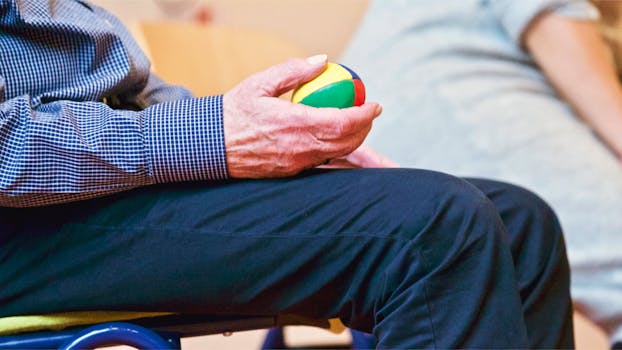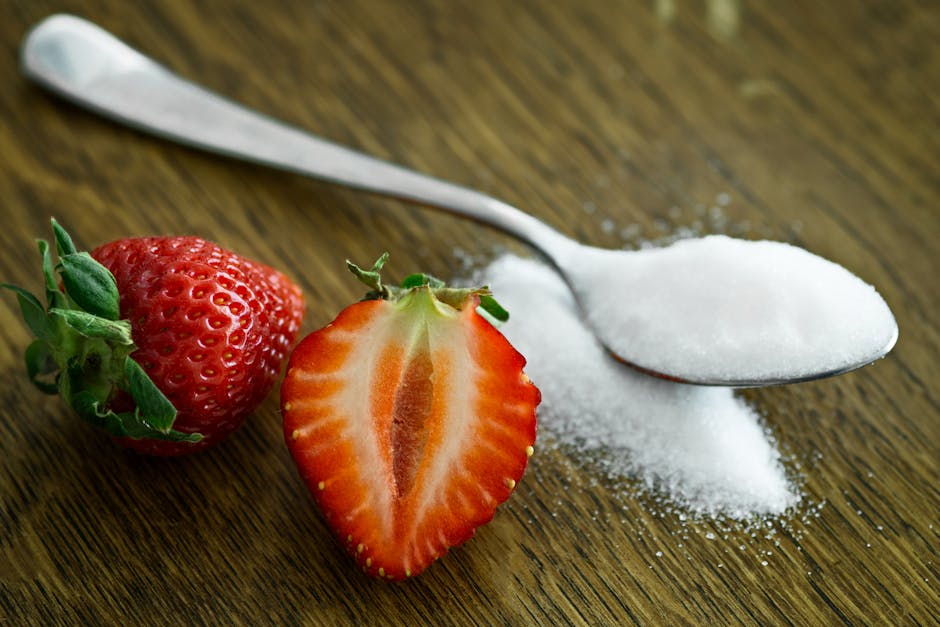Wednesday, March 21st, 2018 at
2:18 am
 Where you get your beef, how it’s raised and, ultimately, the way it is prepared make all the difference in how it affects your health and the environment. Source matters — greatly — and part of that includes knowing where your beef was raised. You’d probably assume that beef labeled “Product of the USA” was a product of the U.S., but this isn’t necessarily the case.
Where you get your beef, how it’s raised and, ultimately, the way it is prepared make all the difference in how it affects your health and the environment. Source matters — greatly — and part of that includes knowing where your beef was raised. You’d probably assume that beef labeled “Product of the USA” was a product of the U.S., but this isn’t necessarily the case.
As it stands there is no USDA requirement that beef or pork be labeled to let consumers know what country it came from, despite the fact that Americans overwhelmingly want to know. A Consumers Union poll found that 93 percent of those who responded said they favored country-of-origin labeling. And why wouldn’t they? It’s one more way for you to know where your food comes from, providing once commonplace information that has disappeared in the industrial food arena.
Read more here:: https://lowcarbmag.com/how-well-do-you-know-your-beef/




Monday, March 19th, 2018 at
4:21 am

Research suggests sugary beverages are to blame for about 183,000 deaths worldwide each year, including 133,000 diabetes deaths, 44,000 heart disease deaths and 6,000 cancer deaths. Even drinking one or more 250 ml (about 8 ounce) servings of soda per day raises your risk of Type 2 diabetes by 18 percent. Soda and other sugar-sweetened beverages (SSBs) are a leading source of added sugar in the U.S. diet, with 6 in 10 youth and 5 in 10 adults drinking at least one such beverage on any given day.
Now the idea that diet soda is a healthier option than regular soda is one of the biggest prevailing myths in the nutrition realm today. If you’re one of the nearly half of U.S. adults who consume artificial sweeteners, mostly in the form of diet soda, daily (even one-quarter of kids do so as well), it’s important you’re let in on the truth
Read more here:: https://lowcarbmag.com/diet-soda-is-not-a-healthier-alternative-heres-why/




Friday, July 21st, 2017 at
10:04 am
 A good mental health helps you enjoy life and cope with problems. It gives a feeling of well-being and inner strength. Just as you take care of your body by eating right and doing your exercise, you can do things to protect your mental health. The truthis, eating right and exercising can help maintain good […]
A good mental health helps you enjoy life and cope with problems. It gives a feeling of well-being and inner strength. Just as you take care of your body by eating right and doing your exercise, you can do things to protect your mental health. The truthis, eating right and exercising can help maintain good […]
Read more here:: https://lowcarbmag.com/eat-right-to-a-healthy-mind/
Monday, May 29th, 2017 at
1:07 am
 There’s a blatant sexism in the fitness industry. One only has to look at fitness stock photos too see this blatant double standard between men and women. Women are treated like toned sex objects lifting small weights and doing simple exercises whereas men are depicted as hulking muscle bound super humans capable of doing anything. This view, while troublesome, is pretty common outside the fitness industry as well.
There’s a blatant sexism in the fitness industry. One only has to look at fitness stock photos too see this blatant double standard between men and women. Women are treated like toned sex objects lifting small weights and doing simple exercises whereas men are depicted as hulking muscle bound super humans capable of doing anything. This view, while troublesome, is pretty common outside the fitness industry as well.
Read more here:: http://lowcarbmag.com/is-there-a-difference-between-the-sexes-when-it-comes-to-fitness/
Friday, May 26th, 2017 at
12:45 am
 Who among us hasn’t put their foot in their mouth on occasion? Sickness and disability can make you feel uncomfortable and tongue tied. Here’s what you need to know about people who have a chronic illness: they’re people just like you. They don’t necessarily want to talk about their health every minute of the day […]
Who among us hasn’t put their foot in their mouth on occasion? Sickness and disability can make you feel uncomfortable and tongue tied. Here’s what you need to know about people who have a chronic illness: they’re people just like you. They don’t necessarily want to talk about their health every minute of the day […]
Read more here:: http://lowcarbmag.com/what-not-to-say-to-someone-with-a-chronic-illness/
Friday, May 26th, 2017 at
12:45 am
 While many claim success using this method, a new study suggests it might not be the best way to go. The study, published in the journal JAMA Internal Medicine, looked at whether alternate-day fasting was more effective for weight loss and weight maintenance compared with daily calorie restriction. The randomized clinical trial, conducted by researchers […]
While many claim success using this method, a new study suggests it might not be the best way to go. The study, published in the journal JAMA Internal Medicine, looked at whether alternate-day fasting was more effective for weight loss and weight maintenance compared with daily calorie restriction. The randomized clinical trial, conducted by researchers […]
Read more here:: http://lowcarbmag.com/is-alternate-day-fasting-more-effective-for-weight-loss/
Wednesday, May 24th, 2017 at
2:13 am

Do you get to the end of a “good” day with food and it all seems to go downhill after dinner? I’ve been there. I’d try SO hard to be good and conscious of what I was eating during the day and then all hell seemed to break loose at night. No matter what I did, I didn’t know how to stop overeating at night!
This is one of the biggest struggles I hear from the women I work with. Here are three things I recommend to help you stop overeating at night:
Make sure your meals during the day are satisfying.
There’s a direct correlation between satisfaction and eating “balanced” (aka eating “normally”). If you’re restricting at all during the day or eating a lot of light or diet foods, you are much more likely to binge at night.
Why is this? Because when you are restricting, it is freaking HARD. It’s like walking a tightrope—rigid, punishing, no room for error. And realistically, it’s just not possible to sustain the pressure you put on yourself to stay on that tightrope!
Read more here:: http://lowcarbmag.com/binge-eating-at-night-heres-how-to-stop/
Wednesday, May 24th, 2017 at
2:12 am
 We can sometimes forget why, exactly, we work so hard to protect our health. Because despite the fact that we’ve created this wonderful, inspiring community of healers, chefs, and yogis, the world is still facing some major health challenges. Heart disease is still the leading cause of mortality for both men and women—responsible for one in four deaths in the United States.
We can sometimes forget why, exactly, we work so hard to protect our health. Because despite the fact that we’ve created this wonderful, inspiring community of healers, chefs, and yogis, the world is still facing some major health challenges. Heart disease is still the leading cause of mortality for both men and women—responsible for one in four deaths in the United States.
Many of us know how to live clean; we understand the dangers of too much sugar, red meat, and a lack of exercise. But what about everyone else? So many people are still falling victim to a medical system and food culture that don’t give them the tools they need to regain their health—or prevent disease in the first place. Luckily, a lot of scientists and researchers are working to change this. A new paper, published in the British Journal of Sports Medicine, argues that we need to rethink the role of dietary fat in cardiovascular disease and hopes to change our medical system’s approach altogether.
Read more here:: http://lowcarbmag.com/doctors-think-heart-disease-is-more-about-inflammation-than-fat/
Thursday, May 18th, 2017 at
10:05 am
 The Stevia plant with its ‘sweet leaf’ is a sugar substitute and also incredibly good for you. Unlike sugar, it doesn’t create an insulin response and actually nourishes the pancreas, which helps regulate blood sugar. The leaf is 30 times sweeter than sugar, while extracts are 300-400 times sweeter. This is good for the sugar addict as it will give sweetness without all the negative effects of sugar.
The Stevia plant with its ‘sweet leaf’ is a sugar substitute and also incredibly good for you. Unlike sugar, it doesn’t create an insulin response and actually nourishes the pancreas, which helps regulate blood sugar. The leaf is 30 times sweeter than sugar, while extracts are 300-400 times sweeter. This is good for the sugar addict as it will give sweetness without all the negative effects of sugar.
SWEET BENEFITS OF STEVIA
Excellent for Diabetics
Type 2 diabetic patients who took 1 gram of stevioside (present in the plant Stevia) with a meal had an 18 percent reduction in blood sugar according to this study. A study that compared Stevia, regular sugar and aspartame, showed that Stevia lowered blood sugar and insulin levels after a meal.
Note: Artificial sweeteners often raise your blood sugar levels even more than sugar.
Read more here:: http://lowcarbmag.com/health-benefits-of-stevia-the-sugar-substitute/
Friday, May 12th, 2017 at
10:34 am
 It has become clear that bee populations are declining more rapidly than expected. In fact, as Colony Collapse Disorder progresses, 1 in 4 native bee species are at risk for extinction. And this is bad news for our diets. New research from the working group at UC Santa Barbara’s National Center for Ecological Analysis and Synthesis showed that:
It has become clear that bee populations are declining more rapidly than expected. In fact, as Colony Collapse Disorder progresses, 1 in 4 native bee species are at risk for extinction. And this is bad news for our diets. New research from the working group at UC Santa Barbara’s National Center for Ecological Analysis and Synthesis showed that:
“…animal-pollinated crops contain the majority of the available dietary lipid, vitamin A, C, and E, and a large portion of the minerals calcium, fluoride, and iron worldwide. The yield increase attributable to animal-dependent pollination of these crops is significant and could have a potentially drastic effect on human nutrition if jeopardized.”
Read more here:: http://lowcarbmag.com/without-bees-you-can-say-goodbye-to-these-breakfast-foods/
 Where you get your beef, how it’s raised and, ultimately, the way it is prepared make all the difference in how it affects your health and the environment. Source matters — greatly — and part of that includes knowing where your beef was raised. You’d probably assume that beef labeled “Product of the USA” was a product of the U.S., but this isn’t necessarily the case.
Where you get your beef, how it’s raised and, ultimately, the way it is prepared make all the difference in how it affects your health and the environment. Source matters — greatly — and part of that includes knowing where your beef was raised. You’d probably assume that beef labeled “Product of the USA” was a product of the U.S., but this isn’t necessarily the case.





 A good mental health helps you enjoy life and cope with problems. It gives a feeling of well-being and inner strength. Just as you take care of your body by eating right and doing your exercise, you can do things to protect your mental health. The truthis, eating right and exercising can help maintain good […]
A good mental health helps you enjoy life and cope with problems. It gives a feeling of well-being and inner strength. Just as you take care of your body by eating right and doing your exercise, you can do things to protect your mental health. The truthis, eating right and exercising can help maintain good […] There’s a blatant sexism in the fitness industry. One only has to look at fitness stock photos too see this blatant double standard between men and women. Women are treated like toned sex objects lifting small weights and doing simple exercises whereas men are depicted as hulking muscle bound super humans capable of doing anything. This view, while troublesome, is pretty common outside the fitness industry as well.
There’s a blatant sexism in the fitness industry. One only has to look at fitness stock photos too see this blatant double standard between men and women. Women are treated like toned sex objects lifting small weights and doing simple exercises whereas men are depicted as hulking muscle bound super humans capable of doing anything. This view, while troublesome, is pretty common outside the fitness industry as well. Who among us hasn’t put their foot in their mouth on occasion? Sickness and disability can make you feel uncomfortable and tongue tied. Here’s what you need to know about people who have a chronic illness: they’re people just like you. They don’t necessarily want to talk about their health every minute of the day […]
Who among us hasn’t put their foot in their mouth on occasion? Sickness and disability can make you feel uncomfortable and tongue tied. Here’s what you need to know about people who have a chronic illness: they’re people just like you. They don’t necessarily want to talk about their health every minute of the day […] While many claim success using this method, a new study suggests it might not be the best way to go. The study, published in the journal JAMA Internal Medicine, looked at whether alternate-day fasting was more effective for weight loss and weight maintenance compared with daily calorie restriction. The randomized clinical trial, conducted by researchers […]
While many claim success using this method, a new study suggests it might not be the best way to go. The study, published in the journal JAMA Internal Medicine, looked at whether alternate-day fasting was more effective for weight loss and weight maintenance compared with daily calorie restriction. The randomized clinical trial, conducted by researchers […]
 We can sometimes forget why, exactly, we work so hard to protect our health. Because despite the fact that we’ve created this wonderful, inspiring community of healers, chefs, and yogis, the world is still facing some major health challenges. Heart disease is still the leading cause of mortality for both men and women—responsible for one in four deaths in the United States.
We can sometimes forget why, exactly, we work so hard to protect our health. Because despite the fact that we’ve created this wonderful, inspiring community of healers, chefs, and yogis, the world is still facing some major health challenges. Heart disease is still the leading cause of mortality for both men and women—responsible for one in four deaths in the United States. The Stevia plant with its ‘sweet leaf’ is a sugar substitute and also incredibly good for you. Unlike sugar, it doesn’t create an insulin response and actually nourishes the pancreas, which helps regulate blood sugar. The leaf is 30 times sweeter than sugar, while extracts are 300-400 times sweeter. This is good for the sugar addict as it will give sweetness without all the negative effects of sugar.
The Stevia plant with its ‘sweet leaf’ is a sugar substitute and also incredibly good for you. Unlike sugar, it doesn’t create an insulin response and actually nourishes the pancreas, which helps regulate blood sugar. The leaf is 30 times sweeter than sugar, while extracts are 300-400 times sweeter. This is good for the sugar addict as it will give sweetness without all the negative effects of sugar. It has become clear that bee populations are declining more rapidly than expected. In fact, as Colony Collapse Disorder progresses, 1 in 4 native bee species are at risk for extinction. And this is bad news for our diets. New research from the working group at UC Santa Barbara’s National Center for Ecological Analysis and Synthesis showed that:
It has become clear that bee populations are declining more rapidly than expected. In fact, as Colony Collapse Disorder progresses, 1 in 4 native bee species are at risk for extinction. And this is bad news for our diets. New research from the working group at UC Santa Barbara’s National Center for Ecological Analysis and Synthesis showed that: